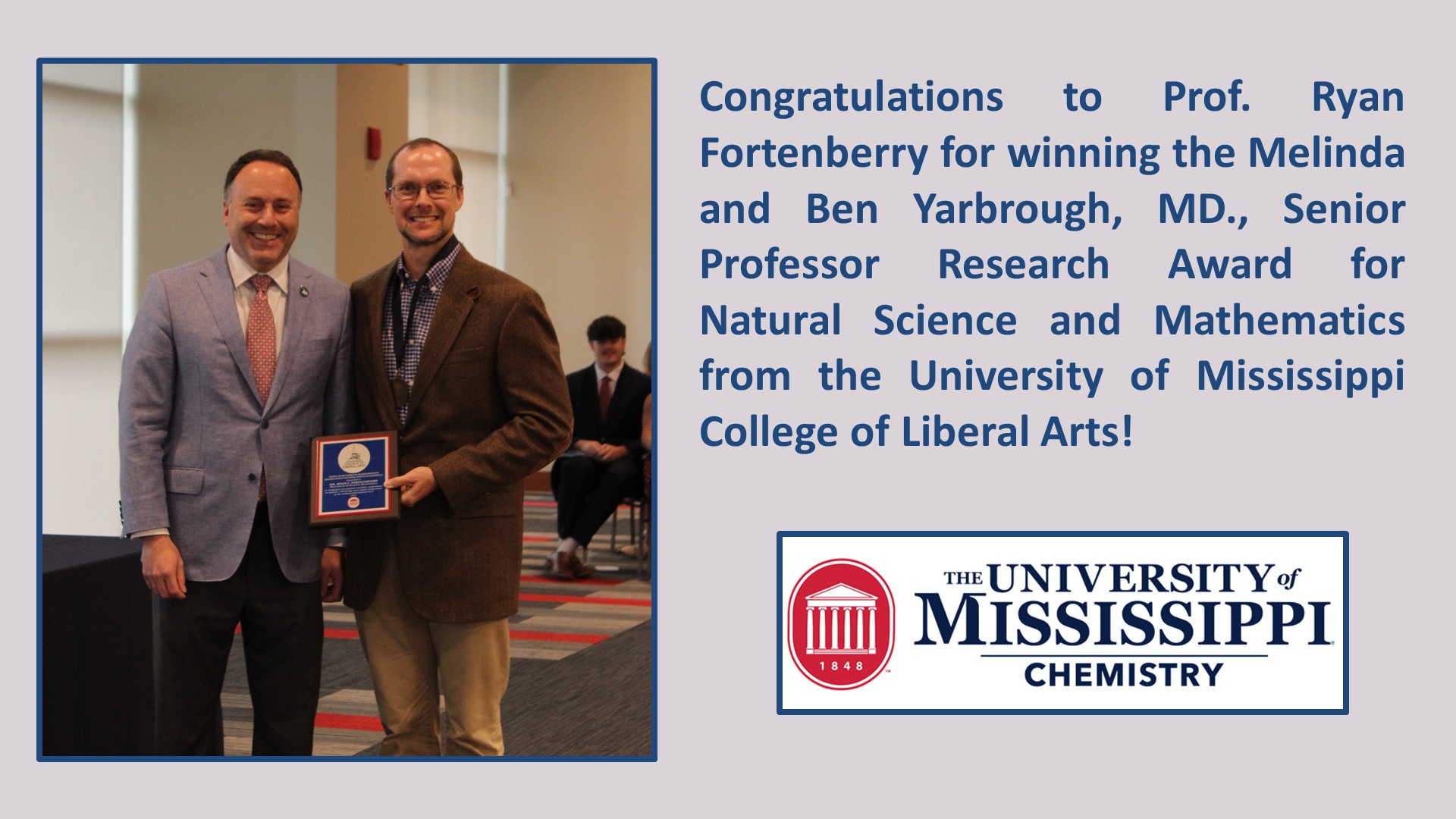
Author Archive
Profs. Tanner and Hammer Recognized at Research Banquet
A dozen outstanding faculty members at the University of Mississippi were recognized Tuesday (April 29) at the inaugural Chancellor’s Awards for Research and Creative Scholarship.
The event, held at The Inn at Ole Miss, recognized faculty whose work has elevated the university’s research and creative scholarship profile and contributed to its R1 designation, a classification for institutions with the highest levels of research activity.
“As you progress in your careers, I once again encourage you to keep nurturing the drive and the yearning that led you here,” Chancellor Glenn Boyce told the honorees. “You are and can be the most inspirational voices on this campus. Keep setting that bar high.
“We need you to continue to be the example not just for your students, but for our young researchers, too. Help them change the world.”

The Office of Technology Commercialization recognized Nathan Hammer, the Margaret McLean Coulter Professor of Chemistry and Biochemistry as a UM Inventor. Hammer represented a team that that earned a U.S. patent last year. Hammer’s team patented NIR-II dyes, compounds that can help researchers image biomolecules in deep tissue imaging. Hammer was awarded with a plaque with of the inventors’ names and the first page of the patent engraved on them.
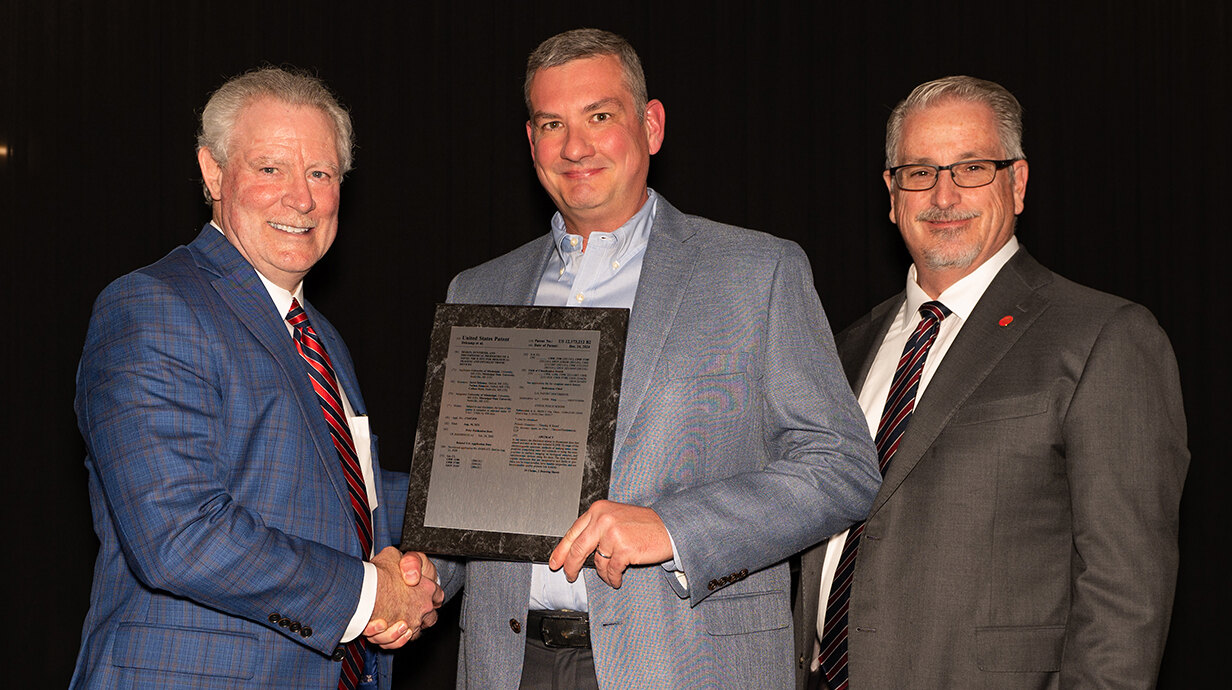
Chancellor Glenn Boyce (left) and John Higginbotham (right), vice chancellor for research and economic development, present Nathan Hammer with a UM Inventor award at the inaugural Chancellor’s Awards for Research and Creative Scholarship. Hammer, the Margaret McLean Coulter Professor of Chemistry and Biochemistry, represented a team of researchers who obtained a U.S. patent for technology they developed on campus. Photo by Bill Dabney

The inaugural Awards for Research and Creative Scholarship highlighted faculty members in multiple categories, including arts and humanities; social and behavioral sciences; and life science, physical science, math or engineering. Each recipient received a trophy and monetary award.
“While it’s easy to look back on a long career and see the impact a faculty member has made, it’s sometimes harder to see progress as it’s happening,” Provost Noel Wilkin said. “Each step from assistant to associate then full professor creates an arc of accomplishments that deserves to be recognized.
“The chancellor saw the need to highlight outstanding faculty throughout their careers, and so we created the Awards for Research and Creative Scholarship. For life science, physical science, math or engineering, the chancellor recognized Eden Tanner, assistant professor of chemistry and biochemistry. “Whether it’s through groundbreaking science, artistic insight or social impact, the faculty honored tonight are changing the face of this university,” Higginbotham said. “Their work doesn’t just add to academic knowledge; it builds a foundation for future discovery, collaboration and leadership on our campus.”

Chancellor Glenn Boyce (left) and John Higginbotham (right), vice chancellor for research and economic development, present Eden Tanner with a Chancellor’s Award for Research and Creative Scholarship. Tanner, assistant professor of chemistry and biochemistry, was honored in the life science, physical science, math or engineering division. Photo by Bill Dabney
Susan Pedigo Bids Farewell With Wisdom and Warmth

Mortar Board’s honored lecturer shares personal stories, scientific passion and life lessons.
Pedigo, a professor of chemistry and biochemistry, spoke Friday (May 2) before an intimate crowd of current students, former students and colleagues in the Overby Center auditorium. She shared lessons she learned from students as part of UM Tassels Chapter of Mortar Board.
“In the long run, life is not a multiple-choice test; it’s about actively engaging in the long term and not being afraid to be wrong,” Pedigo said.
The Last Lecture Series began at Ole Miss in 2013. It was inspired by the book “The Last Lecture” by Randy Pausch.

“The Last Lecture represents a special opportunity for Mortar Board to honor and celebrate a retiring member of the faculty, offering them an opportunity to share about their career or their final thoughts about the importance of higher education,” said Brent Marsh, assistant vice chancellor of student affairs and dean of students.
“In the early years, the chapter didn’t necessarily select a retiring faculty member to speak, so Dr. Pedigo is taking a victory lap as our only two-time lecturer.”
In her victory lap, Pedigo shared imprinting, her fascination with biochemistry as well as her mental and physical scrapbook of memories and proud professor moments of students.
Described as a humanist driven by curiosity about the connections found in life, Pedigo said she was destined to become a professor. It all started at a young age, when she accompanied her mother to classes at the University of Alabama.
“I was kindergarten-age and have clear memories of the library – how it echoed,” she said. “The people were so focused on what they were doing – I remember thinking that there was some kind of magic going on.
“And I just felt like I had to become a professor or an academic of some sort.”
The academic came out in her when she earned her doctorate in biochemistry from the University of Iowa after working as an analytical chemist in a medical college because “hearing those medical stories was so cool.”
Biochemistry blends biology and chemistry so that life can be thought about on a molecular basis. “The thing that’s cool is that trust, love and nurturing are all tied to genes or chemicals in your body, and biochemistry is leading to things like philosophy and chemistry,” she said.

She joined the Ole Miss faculty in 2000 as the first tenure-track woman in the chemistry department. The disadvantage to being the first woman was the isolation and the persistent feeling of “why did they hire me?'” she said.
“But the one thing that’s the value-added component of being the first woman in a tenure position was that it was like a magnet for students from underrepresented groups in STEM. I collected this diverse group of students in my lab that I got to work with.”
Pedigo has won awards for her research into how the structure of proteins influences their function in the body. But she maintains that her most important work has been influencing students.
She has enabled more than 130 students to perform research under her guidance, and she proudly shared photos of some 40 of them during the lecture.
“I think my students are the strongest students at the university – they are very accomplished scholars and bright – I have acknowledged this and their abilities,” she said. “Many will be future physicians, and it’s been such a privilege to teach these students.”
Beth Arantz, a senior biochemistry major from Sydney, Australia, called Pedigo a great mentor.
“She’s probably one of the most intelligent people I’ve ever met,” Arantz said. “She remains open-minded and even as a professor of how many years, she constantly wants to learn and pushed students too to remain open-minded.”

Pedigo has worn many hats throughout her tenure as a professor: professor, mother, colleague, wife and friend, noted Capri Lobotzke, a junior biomedical engineering major from Colorado Springs, Colorado.
“Balancing her many roles, Dr. P has always strived to be a thoughtful professor, sharing her love of biochemistry with her students, still making it home for dinner to be with her husband and kids,” Lobotzke said. “She values every relationship and longs to learn something new from every person she meets, working to see the world from their perspective.”
Pedigo shared that she was asked several years ago by a female student whether a woman could do her job and have a family. The professor responded by written correspondence late at night, after the dishes were washed and laundry folded:
“Yes, you could have it all – a career and a family – but you have to get used to letting some things go.”
As a biochemistry professor and researcher, Pedigo had job flexibility, intellectual challenge and talented students.
She told her audience that when we are young, life is simpler than it seems.
“The key is to work hard, enjoy what you do and to love as if there is no tomorrow,” she said. “Don’t worry, it’ll be OK.”
Top: Susan Pedigo, professor of biochemistry and chemistry, delivers the Mortar Board’s Last Lecture of the 2024-25 academic year. Pedigo is retiring after 25 years of teaching and research at Ole Miss. Photo by Srijita Chattopadhyay/Ole Miss Digital Imaging Services
Researchers Find Biochar Reduces Microplastic Pollution in Agricultural Runoff by More than 92%

Boluwatife Olubusoye, a doctoral student in chemistry, places bags of biochar, or specially heated biowaste, at the head of a runoff tunnel. Olubusoye and a team of Ole Miss and USDA researchers found that biochar can filter more than 92% of microplastics from runoff water. Submitted photo
Using treated plant waste as a filter reduced the presence of harmful microplastics in agricultural runoff by more than 92%, according to a new study authored by a University of Mississippi research team.
Microplastics – tiny plastic particles that are smaller than 5 millimeters – have been found in every ocean on earth, in food, water, and recently, in farmlands. An Ole Miss-led research group has published proof-of-concept data that shows biochar to be a cost friendly and effective method of filtering microplastics from overland water runoff.
Biochar is a type of charcoal made from plant material that has been heated or burned in an oxygen-limited environment.

Boluwatife Olubusoye, a doctoral student in chemistry, collects a sample of agricultural runoff water in the Mississippi Delta. Submitted photo
“Microplastics in the environment stem in part from the degradation of larger plastic by natural physical, chemical and biological processes,” said James Cizdziel, professor and interim chair of the Department of Chemistry and Biochemistry.
“They pose an enormous challenge as they are widespread, persistent and can accumulate in plants and wildlife, leading to detrimental effects on certain organisms and, potentially, on humans who consume them.”
Microplastics have been found in humans and the part of human brains responsible for smell. Though scientists don’t yet know the effects of microplastics on the human body, many studies show that the plastics negatively affect fish and animals that ingest them.
Microplastics in agriculture come from two primary sources, said Boluwatife Olubusoye, an Ole Miss doctoral student in chemistry and an author of the study. Sewage sludge from wastewater treatment plants, which is used as a fertilizer, and plastic mulch and row covers, which insulate plants and promote growth, both bring measurable amounts of microplastics to agricultural areas.
“When these plastic sheets break down in the field, they become very tiny and that’s how you get microplastics in the agricultural fields,” the Lagos, Nigeria, native said. “What happens is that when there is a heavy rainfall, there will be a wash of this agricultural field, which can lead to agricultural runoff.
“And this runoff can transport microplastics, and other pollutants, from the farm into aquatic environments – such as rivers, lakes and oceans – where microplastics can pose threats to organisms like oysters and small fishes.”
Many animals, including humans, feed on such organisms, where the microplastics could be passed on.
Olubusoye and collaborators from the U.S. Department of Agriculture’s Water Quality and Ecology Research Unit in Oxford traveled to a farm near Beasley Lake in the Mississippi Delta to collect agricultural runoff.

James Cizdziel
They tested the water for microplastics in Cizdziel’s microplastic research laboratory at Ole Miss, and passed the runoff through biochar to determine how effective it was at capturing the microplastics.
“We also observed that in addition to agricultural runoff, urban stormwater runoff is a prominent source of microplastics pollution,” Olubusoye said. “Our research is trying to reduce the influx of these contaminants from these runoff events into downstream water bodies.”
Using biochar reduced the amount of microplastics in samples of runoff by between 86.6% and 92.6%. Because of the success of the initial tests, the researchers are scaling up efforts to test biochar in the field.
The researchers will present their findings at three upcoming conferences, including:
- The University Council on Water Resources, National Institute of Water Resources and American Water Resources Association Conference
- The Mississippi Water Resources Conference
- The Society of Environmental Toxicology and Chemistry.

A microscopic look at biochar shows microplastic particles that were caught and removed from agricultural runoff in the Mississippi Delta. Submitted photo
“Our findings underscore the potential of biochar to be a cost-effective adsorbent for the removal of microplastics from runoff,” Cizdziel said. “As such, scaled-up field studies are underway and preliminary data show a marked decrease in microplastics, including tire wear particles, after the runoff passes through large filter socks filled with biochar.
“Our work could result in new agricultural and stormwater management practices to mitigate microplastic pollution stemming from farms and urban runoff in order to safeguard environmental and human health.”
This material is based on work supported by the National Science Foundation grant no. MRI-2116597 and the National Institutes of Health award no. P20GM103460.
OPEN POSITION: Assistant Professor of Chemistry (ANALYTICAL/PHYSICAL)
Position Description
The Department of Chemistry and Biochemistry at the University of Mississippi, located in Oxford, Mississippi, invites applications for a tenure track faculty position at the ASSISTANT PROFESSOR level in the area of ANALYTICAL or PHYSICAL CHEMISTRY to begin in August 2025. Click Here to apply.
Individuals with expertise in any area of analytical or physical chemistry, including experimental or computational/theoretical chemistry and those complementing active research programs in the Department (e.g. astrochemistry, forensic chemistry, nanomaterials, chemical physics, energy, and environmental chemistry) are strongly encouraged to apply.
The Department has 19 tenured and tenure-track faculty, 9 teaching faculty, and a vibrant graduate Ph.D. program. A new $175M STEM education facility on campus has just opened that will foster interdisciplinary opportunities to fulfill our commitment to inclusive excellence in chemical education. Details of this facility can be found on the departmental website (chemistry.olemiss.edu).
The successful candidate is expected to establish a nationally recognized, externally funded research program; provide mentorship for graduate and undergraduate researchers; demonstrate excellence in teaching; and perform service to the department, college, university, and community (visitoxfordms.com)
Position Details
Appointment: 9 Month
Assignment Type: Tenure Track
Minimum Qualifications
Applicants must have a Ph.D. and relevant experience beyond the Ph.D. in analytical or physical chemistry (broadly defined) or a closely related field.
Application Procedures
Review of applications will begin October 15th, 2024 and continue until an adequate applicant pool is established. Applications must be submitted online (careers.olemiss.edu) and should include a cover letter, a current CV, research plans, and a teaching philosophy statement.
Because the University of Mississippi and the Department of Chemistry and Biochemistry are committed to building an inclusive and diverse university community, applicants should specify within their application how their teaching, scholarship, and service will contribute to a diverse and inclusive community. During the online application process, applicants will be prompted to provide the names and email addresses of three professional references that will provide letters of recommendation.
About the University of MS & Oxford, MS
Founded in 1848, the University of Mississippi (UM), affectionately known to alumni, students and friends as Ole Miss, is Mississippi’s flagship university. Included in the elite group of R-1: Doctoral Universities – Highest Research Activity by the Carnegie Classification, it has a long history of producing leaders in public service, academics and business. The University of Mississippi, consistently named by The Chronicle of Higher Education as a “Great College to Work For,” is located in Oxford, MS, which is ranked one of the “Top 10 Best College Towns.” With more than 24,000 students, UM is the state’s largest university and is ranked among the nation’s fastest-growing institutions. The University of Mississippi, which has aggressively implemented many health and wellness initiatives for its more than 2,900 employees, has consistently been named one of Mississippi’s Healthiest Workplaces.
Touted as the “Cultural Mecca of the South”, creativity abounds in Oxford as musicians, artists and writers alike find inspiration in Oxford’s rich history, small town charm and creative community. Oxford is a one-hour drive south of Memphis, TN and is known as the home of Nobel Prize winning author William Faulkner. Over the years Oxford has also been known for offering exceptional culinary experiences and as the home of the University of Mississippi and the Ole Miss Rebels, there is always something here to immerse yourself in. Oxford has also been featured as a literary and arts destination in such publications as The New York Times, Southern Living, Condé Nast Traveler, and GQ. Among other cultural activities, annual events include the Oxford Film Festival, a thriving local music scene, and the Ford Center Performing Arts Series. Oxford is a vibrant university town, filled with unique shops and galleries, eclectic restaurants and clubs, historic landmarks, and comfortable inns.
Background Check Statement
The University of Mississippi is committed to providing a safe campus community. UM conducts background investigations for applicants being considered for employment. Background investigations include a criminal history record check, and when appropriate, a financial (credit) report or driving history check.
EEO Statement
Department Welcomes Instructor Amy Lynn Rosen
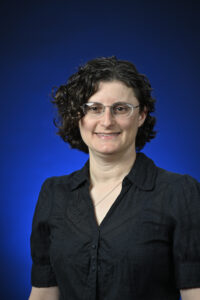
Amy Lynn Rosen, Instructor
Amy Lynn Rosen will join the University of Mississippi Department of Chemistry & Biochemistry as an Instructor and the Associate Coordinator of Undergraduate Labs on August 1st. Ms. Rosen received her Bachelor of Science from the University of California, Berkeley, in 2001, a Masters of Science from Indiana University in 2003, and a Masters in Arts in Science Education from Columbia University Teachers College in 2004. She was a US Presidential Scholar Distinguished Teacher in 2021 and Outstanding Teacher of the Year for the Lafayette County Soil & Water Conservation District in 2023.
Her professional interests lie in chemistry education, development of curricular materials, inclusive practices in undergraduate education, training secondary science educators, and community outreach.
Department Welcomes Prof. Sujay Ray
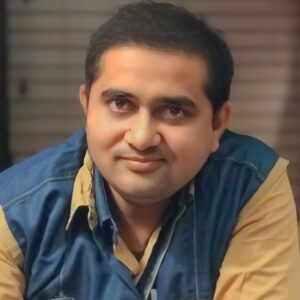
Sujay Ray, Assistant Professor
Dr. Sujay Ray will join the University of Mississippi Department of Chemistry & Biochemistry on August 1st. Dr. Ray received his Bachelor of Science from Calcutta University, India, in 2007, a Masters of Science from Indian Institute of Technology, India, in 2009, and a Doctor of Philosophy in Physics from Kent State University in 2015. He then served as a postdoctoral fellow at the University of Michigan from 2015-2020 and Harvard University from 2020-2022, and then as a senior research assistant at the University of Michigan before joining the faculty at UM. His interests center around nucleic acid-protein interactions in the context of cellular stress responses, DNA/RNA- nano structures, molecular robotics, single molecule biophysics/biochemistry, fluorescence microscopy, and force spectroscopy.
His research group at the University of Mississippi will study how biological systems work at the nanoscale, focusing on cellular stress response. He will look at how certain structures made of DNA/RNA help cells manage resources and adapt to challenging stress conditions by prioritizing essential functions. He aims to understand how these complex DNA/RNA structures interact with different proteins to manage the demands of the cell. His goal is to clearly link between structural attributes and functional response and ultimately harness these insights for biotechnological innovations and clinical intervention. To accomplish this, he will develop and apply novel single-molecule manipulation and detection techniques, and nanoscale engineering. His research projects will combine approaches from a variety of disciplines including chemistry, physics, molecular biology, and engineering we collaborate with researchers from these various disciplines.
Department Welcomes Prof. Jinchao Lou
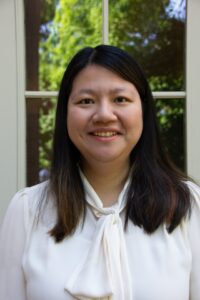
Jinchao Lou, Assistant Professor
Dr. Jinchao Lou will join the University of Mississippi Department of Chemistry & Biochemistry on August 1st. Dr. Lou received her Bachelor of Science from Northwest Normal University, China, in 2016, and a Doctor of Philosophy in Chemistry from the University of Tennessee in 2022. She then served as a postdoctoral fellow at the University of Tennessee before joining the faculty at UM. Her interests center around bio-organic chemistry, chemical biology, nanomaterials, drug delivery, and synthetic organic chemistry.
The emerging fields of nanomedicine and biomaterials have the potential to significantly impact human health by improving the diagnosis, prevention, and treatment of diseases. However, despite significant attention and investment, the clinical adoption of nanoparticle-based therapeutic and imaging agents faces substantial biological, immunological, and translational challenges. Dr. Lou’s research group aims to address these critical challenges in nanomedicine and biomaterials by developing responsive materials that can effectively navigate complex biological environments through organic chemistry approaches. She strives to contribute significantly to the diagnosis and treatment of diseases, ultimately improving human health and well-being. Dr. Lou’s research interests include 1) developing multi-stimuli-responsive peptide-based programmable materials to enhance the responsiveness and target specificity of nanomedicine; 2) creating short and ultrashort peptide small molecule materials that have the unique property of self-assembling in situ upon exposure to specific stimuli, thereby amplifying nanomedicine tissue penetration ability; and 3) developing chemical biology tools to better understand peptidoglycan synthesis in various bacteria cells, ultimately aiming to improve the efficacy of bacteria-targeted therapeutics.
